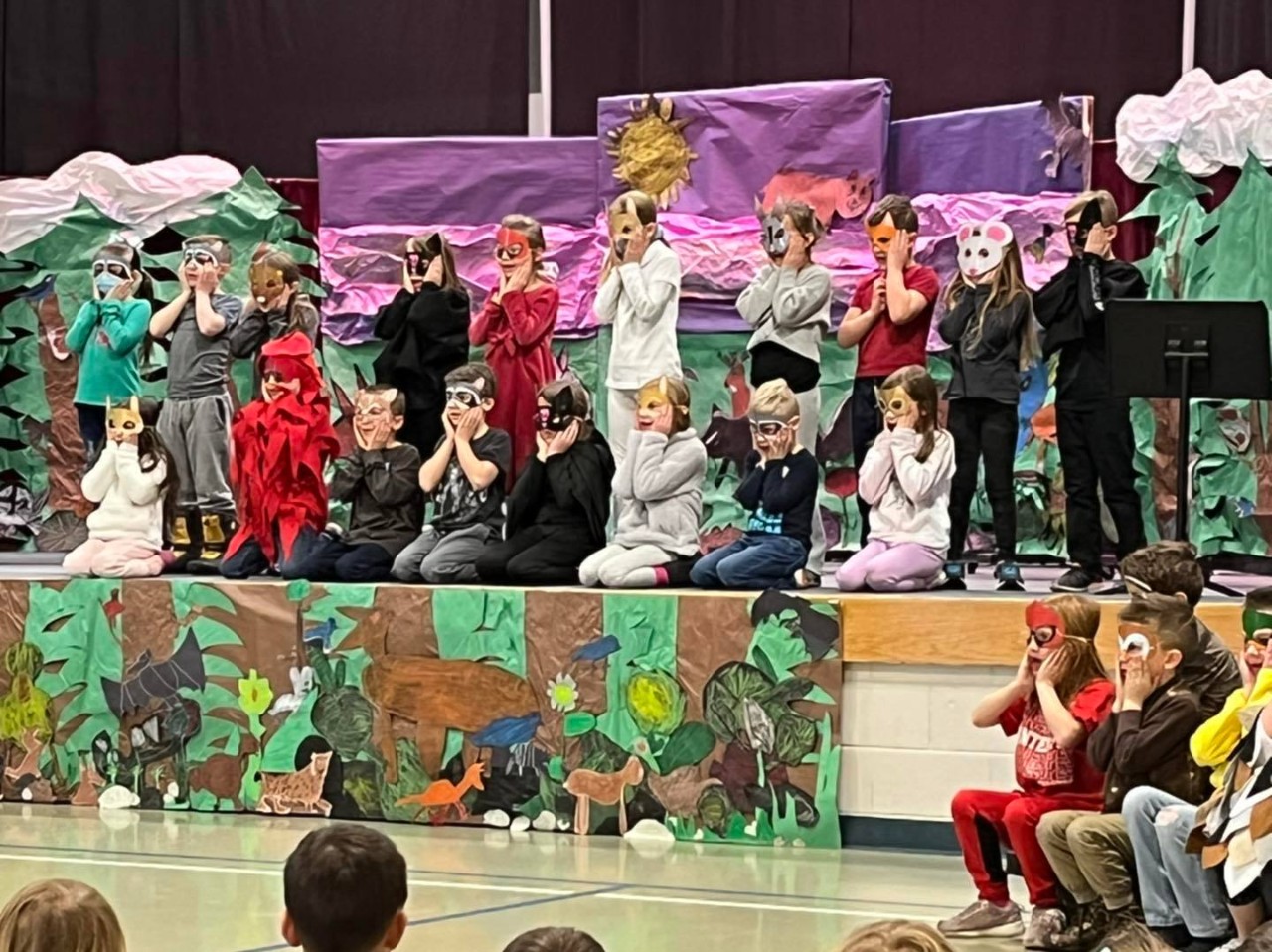Our Philosophy
At Antelope Trails, we encourage a lifelong love of learning. From the early years on, we aim to get to know each and every one of our students as a whole child. From their passions and interests, to their family and life beyond school, we understand that each child has needs and strengths to support and foster. We personalize learning, combining early literacy and math skills with hands-on experiences, to ensure academic success.
First grade students have frequent opportunities to work with others. Engaging in collaborative learning allows students the opportunity to practice their social and self-management skills - areas we know to be vitally important to student success. These experiences also allow students to learn from others. Through IB practice, students are encouraged to be caring, inquirers, and principled.
The Antelope Trails community holds many events throughout the year. We welcome volunteers and value family participation. We are excited to partner alongside you and your family to make your child's elementary experience the best it can be.
First Grade Daily Schedule
Soft Start/Morning Message
Reading
WIN Time (What I Need in Reading)
Lunch
Recess
Writing
Math
Snack/Read Aloud
Science/Social Studies
Recess
Specials (Music, Art, P.E., or Spanish)
Pack Up/Dismissal
Curriculum
Reading
In first grade, we focus on the Science of Reading, developing skill in the five components of reading (see below). To support this instruction, we utilize the SuperKids Reading curriculum as our primary resource, as well as Secret Stories and Orton-Gillingham strategies. Students read both fiction and non-fiction selections specifically designed to be decodable based on the students’ previous learning, giving all students an opportunity to be a confident reader. Instruction is presented in both whole group and small group formats to ensure each child gets what they need to be successful.
Phonemic Awareness: The ability to hear, identify and manipulate the individual sounds (phonemes) in spoken words.
Phonics: The relationship between phonemes (the sounds of the spoken language) and graphemes (the letters and spellings that represent those sounds in written language).
Vocabulary: Developing an understanding of the pronunciation, meaning, and usage/application of words we need to know to communicate effectively with others.
Fluency: The ability to recognize words quickly to read text accurately, at an appropriate rate, and using phrasing and emphasis in a way that makes what we read sound like spoken language.
Comprehension: Understanding, remembering and communicating with others about what has been read.
Writing and Spelling
First grade uses the connected writing component of the SuperKids curriculum. Students learn and practice writing in multiple writing genres while focusing on the conventions of writing, including the use of capitalization, punctuation, and the application of learned spelling patterns. As we progress through the year, the students move from writing single sentences to communicating their ideas in multiple sentence paragraphs, adding information and details to support their ideas.
Spelling patterns are taught and practiced in each 10-day unit and correlate to what the kids are reading in text. Spelling tests are given on the 5th and 10th day of each unit and students are supported in applying these learned patterns in their writing.
Mathematics
We utilize the Reveal Math curriculum to instruct math. By encouraging curiosity, exploration, and a growth mindset, Reveal Math allows students to see math as a dynamic set of problem-solving strategies instead of the application of memorized algorithmic or computational procedures. At each grade level, math instruction is taught with the approach of both whole group and small group instruction. Math practice is supplemented with the online component of Redbird and fact fluency practice using Rocket Math.
Science
We utilize the Building Blocks Science curriculum to learn about Life, Earth, and Physical Science.
Life Science: The Exploring Organism unit is used as our resource to learn about how living things change and grow, what living things need, and the characteristics of living things and how those characteristics help them survive in their environment. This learning is part of a larger unit of inquiry, Sharing the Planet.
Earth Systems Science: The Sky Watchers unit is a stand-alone unit that explores the patterns in the sky. Students learn about the Earth’s movement and explore how the earth’s movement impacts our observations of the sun, moon, Moon phases and stars.
Physical Science: The Light and Sounds Waves unit focuses on the concepts underlying light and sounds and how they can be used to communicate. Students practice using the scientific method as they work to solve real-life problems. The concepts from this unit begin our unit of inquiry, How the World Works, as we explore inventors, inventions, and the process of inventing.
Social Studies
Our Social Studies standards in the areas of Civics, History, Geography, and Economics are taught through units of inquiry. We utilize the Social Studies Alive curriculum as a resource.
Civics: Our unit of inquiry, Who We Are, focuses on the IB Learner Profile, development of our class charter, and our personal responsibility as citizens of our classroom, school, community, state, and country.
History/Geography: Our unit of inquiry, Where We Are in Place and Time, focus on family histories, traditions, and connections between generations within a family. We also explore traditions and customs from other parts of the world and learn how to use maps and globes to locate places.
Economics: Our unit of inquiry, How We Organize Ourselves, focuses on economics and personal financial literacy. We explore different jobs and how people choose their jobs, the concepts of goods and services, bartering, earning an income, and how to make short-term and long-term financial goals.
